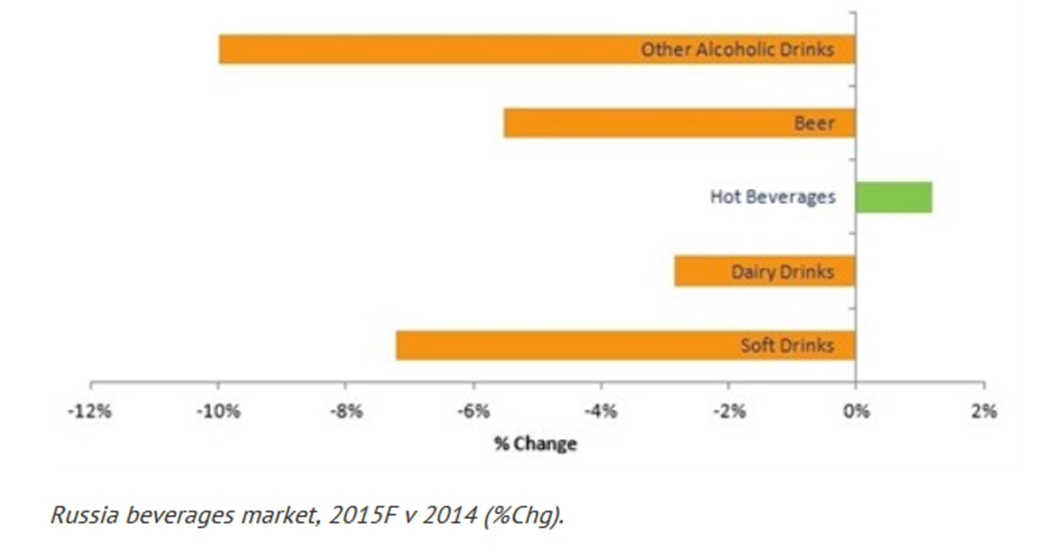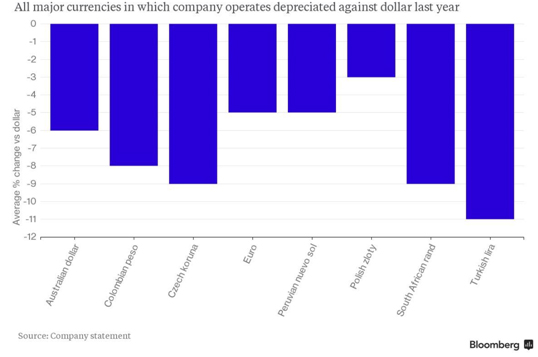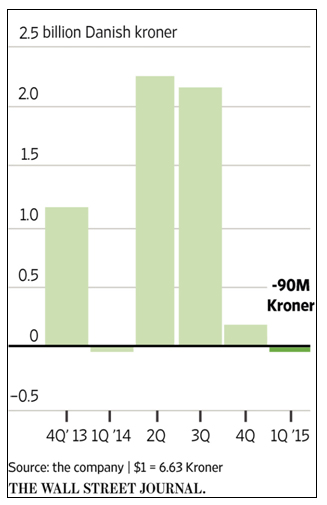On 2 June 2015 more than 20 public health NGOs resigned from the EU Alcohol and Health Forum, following the announcement by Commissioner Vytenis Andriukaitis on 22 May 2015 that he has no plans to submit a new strategy to reduce alcohol-related harm in Europe, suggesting that the issue will be tackled as part of a broad range of “risk factors” affecting chronic diseases.
He should have known better. The head of the German unit of the world’s biggest brewer AB-InBev, Till Hedrich, lost his job with immediate effect over a drink-driving incident, media reported on 2 June 2015.
Russian beer is getting crushed. The Russian beer market plunged by an estimated 9 percent in the first three months of 2015, compared to the same period last year, according to reports. Moreover, imported beers are becoming almost prohibitively expensive due to the ruble’s continuing weakness. Consumers are feeling the pinch.
Those, who can, do. And those who cannot, play golf. It’s a cruel saying (my apologies to golfers) but it came to mind when recently talking to Martin Wartmann, a Swiss brewer, who coquettishly explained his decision to open Switzerland’s only monastery brewery at the advanced age of 67 because he does not enjoy playing golf.
Job cuts are never easy but someone has to swing the axe. Carlsberg on 20 May 2015 announced it had cut about 180 office jobs, seeking to save money and offset the challenge of a shrinking economy in Russia, where it’s the biggest brewer.
Despite its impressive rise over the last few years, craft beer still occupies a tiny share of the UK beer market: less than 1 percent, says BrewDog. The Scottish brewer is behind a new initiative – United Craft Brewers – a group which was launched in early May 2015. The founder members are Camden Town Brewery, Magic Rock Brewing, Beavertown Brewery, distributor James Clay and BrewDog. The association’s mission is to “respect, promote and educate the British drinking public about craft beer – a joint promotion of beer, irrespective of delivery method.”
How mean. UK media quipped that the world's number two brewer has got “crafty” with the acquisition of London-based brewery Meantime. Meantime was established by brewmaster Alastair Hook in 1999 when he built a brewery in Greenwich, London. The business has since created a successful range of British and international beer styles. Last year, Meantime reportedly increased its beer sales by 58 percent to reach over 60,000 hl, outpacing the UK beer market’s 1 percent growth.
Who is to blame if women don’t drink beer? Only the brewers themselves. SABMiller’s CEO Alan Clark thinks it is the brewers’ “insulting” and “dismissive” advertising that is putting women off beer. On 13 May 2015 he said it is time to consign the “lager lout, laddish, college frat” image of beer drinking to history and to “modernise” beer.
Carlsberg’s outgoing CEO Jørgen Buhl Rasmussen reiterated that Carlsberg would remain committed to Russia despite current woes. But he would say that, wouldn’t he? There is no buyer willing to take Carlsberg’s Russian business of their hands at this point.
Björn Falkeström’s secret wish was granted. He did not receive the award for Entrepreneur of the Year by the Swedish newspaper Svenska Dagbladet (see our report in Brauwelt INTERNATIONAL 2/2015).





